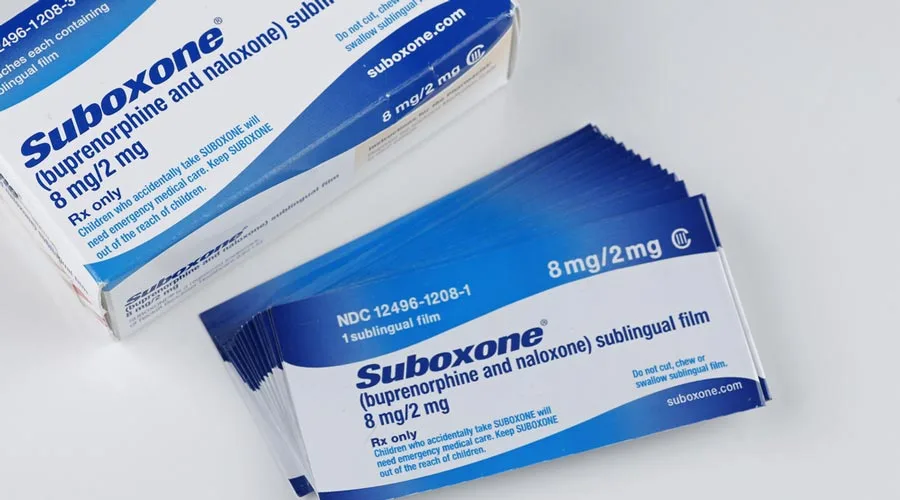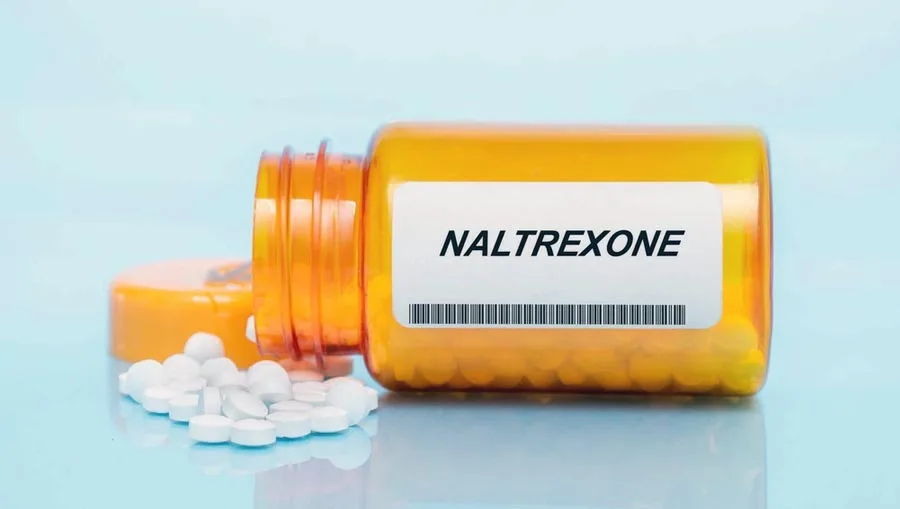Understanding Medication-Assisted Treatment and Getting Help
Have you ever tried to stop drinking after long-term alcohol use? Maybe you’ve been binging for a few weeks. Or maybe, you’ve been using alcohol for months or years. Chances are, in either of these scenarios, trying to quit brought on unpleasant symptoms like tremors, increased, heart rate, heightened body temperature, nausea, chills, delirium, and even seizures.
These symptoms are uncomfortable, but they can also be dangerous. This can leave you wondering, does Suboxone help with alcohol withdrawal? Or is there another alternative to treat my symptoms?
Suboxone is one of several FDA-approved medications that may be used to treat alcohol withdrawal symptoms. While it is not the only option, it can be effective. It works by depressing the central nervous system, similar to the way that alcohol does. A doctor may also prescribe a tapered dose, so you take less over time as the symptoms subside. The goal is to reduce alcohol dependency.
Below, we’ll take a closer look at whether Suboxone is a good choice for treating alcohol dependence and the symptoms of alcohol withdrawal. We’ll also discuss other treatment alternatives and how to reach out to South Shores to learn more about our medical detox and alcohol addiction treatment programs.
What is Suboxone?
Suboxone is a medication created by combining two drugs; naloxone and buprenorphine. It’s available in pill form or can be dissolved under the tongue and is commonly used to treat opioid addiction.
The buprenorphine found in Suboxone works as a partial opioid agonist. Essentially, this means it tricks the brain into thinking you’ve had a dose of an opioid. It depresses the central nervous system and reduces withdrawal symptoms without producing the same high.
Naloxone blocks opioid receptors, working as an opioid antagonist. It benefits people with opioid use disorder because it stops one from experiencing the “high” associated with buprenorphine, as well as other opioids. There is less motivation to abuse the drug. Naloxone can also induce withdrawal symptoms when opioids are used, which is a strong deterrent.
Can Suboxone Help with Alcohol Withdrawal Symptoms?
Suboxone is most well-known for its ability to treat opioid addiction and withdrawal. Opioids are a depressant that affects the central nervous system similar to the way alcohol does.
Suboxone does have some benefits for people experiencing alcohol withdrawal. First, buprenorphine can reduce alcohol consumption in certain doses. According to studies done in rats, higher doses of buprenorphine reduce cravings for alcohol, while low doses of the drug increase drinking.
While taking Suboxone does have benefits for alcohol abuse, doctors only prescribe Suboxone as part of a comprehensive alcohol addiction treatment plan. It’s important to address the reasons that you drink alcohol. This will help identify triggers and develop coping skills for the future. Furthermore, getting treatment for existing mental or physical health problems reduces the motivation to drink.
What Other Medications Can Help with Alcohol Withdrawal?
Suboxone isn’t always the right choice for managing symptoms of alcohol withdrawal. Other FDA-approved medications approved for alcohol use disorder (AUD) include Naltrexone by itself, Disulfiram, and Acamprosate. Naltrexone works by blocking the feelings of pleasure or relief most people experience when drinking alcohol. Disulfiram and Acamprosate also make drinking alcohol less desirable, which can effectively reduce alcohol cravings.
Each of them discourages future alcohol misuse, while also helping with protracted withdrawal symptoms that might last longer than the initial period. Disulfiram helps with rapid heart rate, for example, while acamprosate helps with insomnia and anxiety.
Several medications may be used for alcohol withdrawal. A medical professional may prescribe something with sedative effects like benzodiazepines, anticonvulsants, or barbituates. These are also FDA-approved for complications that arise from alcohol withdrawal. The relaxing effects depress the central nervous system, helping control the worst side effects of alcohol withdrawal.
Finally, vitamins may be prescribed for alcohol withdrawal. Vitamins can help with some symptoms and proper nutrition also helps reduce cravings. For example, B6 is known to improve energy levels and decrease feelings of nausea. Vitamins and electrolytes will also provide the support your body needs to start healing after long-term alcohol misuse.
How is Alcohol Withdrawal Treated?
Using medications for alcohol withdrawal is only one part of substance abuse treatment. It is most beneficial during the initial detox phase for alcohol. However, it’s important to remember that alcohol dependence affects your mind and your body.
Most people use alcohol to numb mental symptoms like anxiety, depression, or unresolved trauma. Or, they turn to alcohol to cope with physical pain. You must address these issues to effectively treat alcoholism. Another part will be getting support in place to help you maintain abstinence after a treatment program.
The Most Common Symptoms of Alcohol Withdrawal
Most people start experiencing withdrawal symptoms within 6-8 hours after having their last drink. Some of the less severe (but still unpleasant) symptoms of acute alcohol withdrawal include:
- Nervousness, anxiety, and irritability
- Excessive sweating
- Headache
- Nausea or upset stomach
- Insomnia
- Increased heart rate and blood pressure
- Heart palpitations
- Increased body temperature
- Mild to severe shakes from alcohol withdrawal or tremors
- Mental symptoms like disorientation or confusion
The symptoms of acute alcohol withdrawal typically peak around 24 hours. They can last up to three days, though some people have symptoms for weeks. It’s also possible for withdrawal to progress to delirium tremens. This produces severe symptoms like seizures, fever, delirium, hallucinations, and an increased risk of cardiac events and stroke.
Can You Die from Alcohol Withdrawals?
For people with alcohol use disorder (AUD), withdrawing from alcohol can be fatal. However, only a small percentage of people who suddenly decrease or reduce alcohol intake experience life-threatening symptoms.
The risks when you suddenly stop drinking increase for people with a greater tolerance for alcohol. There’s also a greater risk of complications potentially leading to death if you have pre-existing heart conditions. For example, people who already have coronary problems are at the greatest risk of heart-related side effects.
If you have a pre-existing medical condition or have participated in heavy, extensive drinking, you may be at greater risk. Those who are at risk find it more comfortable to go through withdrawal as part of a medical detox program. At these programs, you’ll undergo these symptoms with the supervision and help of a medical professional. At South Shores, we offer 24/7 medical supervision for these circumstances to ensure the safety and comfort of our clients.
What is the Difference Between Alcohol Withdrawal and Alcohol Withdrawal Syndrome?
Alcohol withdrawal symptoms are the shakiness, tremors, irritability, and other symptoms you’ll commonly experience once you quit drinking. The group of symptoms experienced is known as alcohol withdrawal syndrome. It may also 3 days up to a week for the average person, though some people experience AWS for weeks after they stop alcohol.
The most severe form of alcohol withdrawal is called delirium tremens. It’s estimated that around 3-5% of people struggling with alcohol use disorder experience this condition. It’s important to seek help if you have alcohol withdrawal seizures, fever, disorientation, hallucinations, or heart palpitations. This is a case where treating alcohol withdrawal may be critical for preventing life-threatening symptoms.
The Most Effective Treatment Options for Alcohol Addiction
According to 2022 statistics, approximately 29.5 million people ages 12+ struggled with alcohol use disorder across the United States. This is 10.5% of people in this age group. It’s easy to slip into drinking habits. Alcohol is more normalized than other substances and as a legal substance, it’s more accessible, too.
Even with legal substances like alcohol, there’s a high risk of addiction with frequent use. People may turn to alcohol as a means to relax or cope with stress. With time, however, drinking becomes a habit that is hard to quit.
How is Alcohol Use Disorder Diagnosed?
People who seek treatment for alcohol use are often aware of the impact alcohol is having on their lives. But when does substance misuse become alcohol use disorder? This happens when alcohol seems to be ruining your life, but it is still difficult to quit.
Drinking may cause financial troubles and problems at work, ruin relationships with family, friends, and intimate partners, and have physical and mental health consequences. Some people also face legal problems as a result of alcohol use disorder.
Diagnosis begins during intake when you’ll be asked questions about alcohol use and habits, use of other substances, stress in your life, family history, medical history, and mental health. This step is important, even though it can be hard to talk about these things. At South Shores, we use this information to determine how to best help you. From there, we will work together to craft an individualized treatment for alcohol addiction.
Medical Detox and Inpatient Rehab Programs
Alcohol detox programs are extremely beneficial for people experiencing uncomfortable symptoms from alcohol withdrawal. Typically, clinicians will provide medical supervision and prescribe medications as needed.
You’ll also be encouraged to attend individual and group therapy as you learn more about nutritional support, physical activity, and better lifestyle habits that will benefit you after detox.
Other Options for Treating Alcohol Use Disorder
Inpatient treatment is not always possible for everyone. However, that doesn’t mean that you have to walk the road to sobriety alone. Some people choose to attend partial hospitalization programs or intensive outpatient programs. During these programs, you’ll attend individual counseling, groups, and medication management classes. They last 3-5 hours per day but are spread out on different days of the week, making it easier to accommodate your schedule.
There are also outpatient treatment options for alcohol use disorder. For starters, you’ll need to work with an individual therapist who will help you uncover your motivations for drinking. Discussing these things gives you more power over them.
You’ll also discuss how to handle these things going forward and how to reduce cravings for alcohol when you have the desire to drink. Specialized therapies may be another option. Cognitive behavioral therapy is proven effective for alcohol addiction.
Lastly, support groups such as AA, NA, and SMART Recovery, among others, are also incredibly beneficial. At these meetings, you’ll find emotional support from peers who understand what you are going through. You can also connect with people that you might be able to talk to when you are going through a hard time.
Get a Personalized Alcohol Detox at South Shores Detox
Reach out to our recovery specialists at South Shores. We work hard to ensure the safety and comfort of our clients, no matter what stage they are at in the recovery process. Even if you’ve tried to overcome alcohol addiction before without success, getting sober at South Shores is different.
We understand that addiction treatment doesn’t look the same for everyone. Make the confidential call to discuss your options today!
References
- https://www.niaaa.nih.gov/alcohols-effects-health/alcohol-topics/alcohol-facts-and-statistics/alcohol-use-disorder-aud-united-states-age-groups-and-demographic-characteristics
- https://my.clevelandclinic.org/health/diseases/alcohol-withdrawal
- https://www.ncbi.nlm.nih.gov/books/NBK441882/
- https://www.ncbi.nlm.nih.gov/books/NBK482134/
- https://pubmed.ncbi.nlm.nih.gov/16533497/





